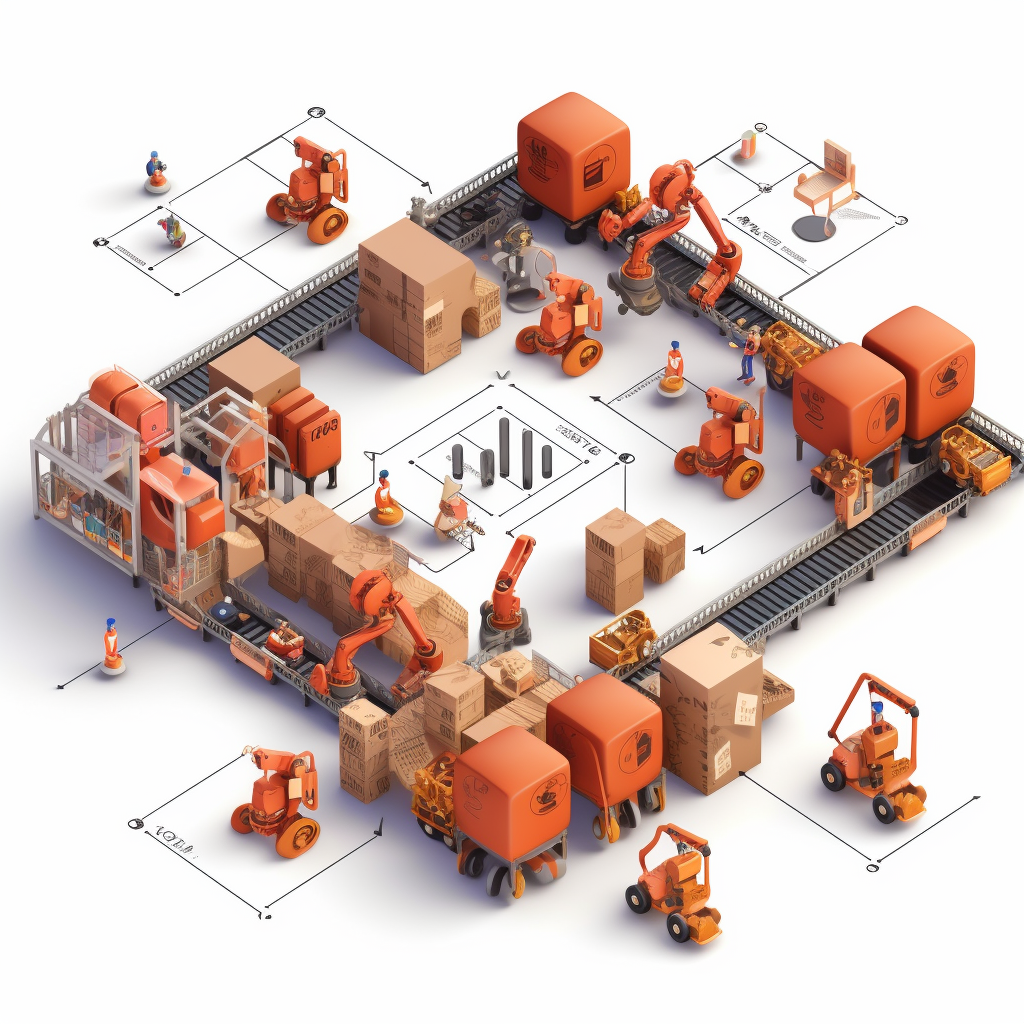How AI Could Eliminate Human Touchpoints

Hey there, fellow readers! Today, we're diving into an exciting topic that's transforming the world of supply chains. You might have heard about artificial intelligence (AI) making waves in various industries, but did you know it has the potential to completely remove human touchpoints in supply chains? In this article, we'll explore the pros and cons of this groundbreaking advancement. So, let's get started!
Pros of AI-Powered Supply Chains:
- Enhanced Efficiency: One of the key advantages of AI in supply chains is the significant improvement in efficiency. With AI algorithms analyzing vast amounts of data, it becomes possible to optimize various processes, such as inventory management, logistics, and demand forecasting. By reducing manual tasks and automating decision-making, businesses can achieve higher productivity and minimize errors.
- Real-Time Data Insights: AI-powered supply chains enable real-time monitoring and analysis of data across the entire supply network. This means businesses can gain valuable insights into inventory levels, consumer demand patterns, and market trends. With this information, companies can make proactive decisions to streamline operations, reduce waste, and respond swiftly to changes in customer preferences.
- Increased Accuracy and Precision: By leveraging AI technologies, supply chains can achieve unprecedented levels of accuracy and precision. Machine learning algorithms can learn from historical data, recognize patterns, and make predictions with remarkable accuracy. This reduces the risk of errors in tasks like demand forecasting, quality control, and order fulfillment, ultimately leading to higher customer satisfaction.
- Improved Risk Management: Supply chains often face uncertainties and risks, such as disruptions in transportation, natural disasters, or geopolitical events. AI-powered systems can help identify potential risks, predict their impact, and suggest proactive measures to mitigate them. By swiftly adapting to unforeseen circumstances, businesses can minimize disruptions and maintain continuity in their operations.
Cons of AI-Powered Supply Chains:
- Reliance on Technology: While AI brings numerous benefits, it also means supply chains become heavily reliant on technology. System malfunctions, data breaches, or power outages can temporarily halt operations and cause significant disruptions. To mitigate this risk, organizations must invest in robust backup systems, cybersecurity measures, and staff training to ensure seamless functioning.
- Workforce Displacement: As AI takes over repetitive tasks, there is a concern regarding job displacement. Some roles traditionally performed by humans, such as manual labor or data entry, may become obsolete. This raises important questions about retraining the workforce and ensuring a smooth transition for those affected by the automation process.
- Limited Human Judgment: AI excels in analyzing data and making data-driven decisions. However, it lacks the human touch when it comes to complex judgment calls, strategic planning, and creative problem-solving. Supply chains may still require human intervention to address unique situations, build relationships with partners, and make critical decisions based on intuition and experience.
- Ethical and Legal Considerations: AI-powered systems gather and process vast amounts of data, raising concerns about privacy, data ownership, and ethical use. Supply chains must navigate potential legal and regulatory challenges, ensuring compliance with data protection laws and maintaining transparency in their operations. Additionally, there is a need to carefully consider the ethical implications of using AI to replace human workers and ensure fair treatment for all stakeholders.
Conclusion: AI-powered supply chains have the potential to revolutionize the way businesses operate. The efficiency, real-time insights, accuracy, and risk management benefits offered by AI are undeniable. However, it's crucial to address the cons as well, such as reliance on technology, workforce displacement, limited human judgment, and ethical considerations. Striking the right balance between technology and human involvement will be key to reaping the full potential of AI while ensuring a sustainable and ethical supply chain ecosystem. Exciting
